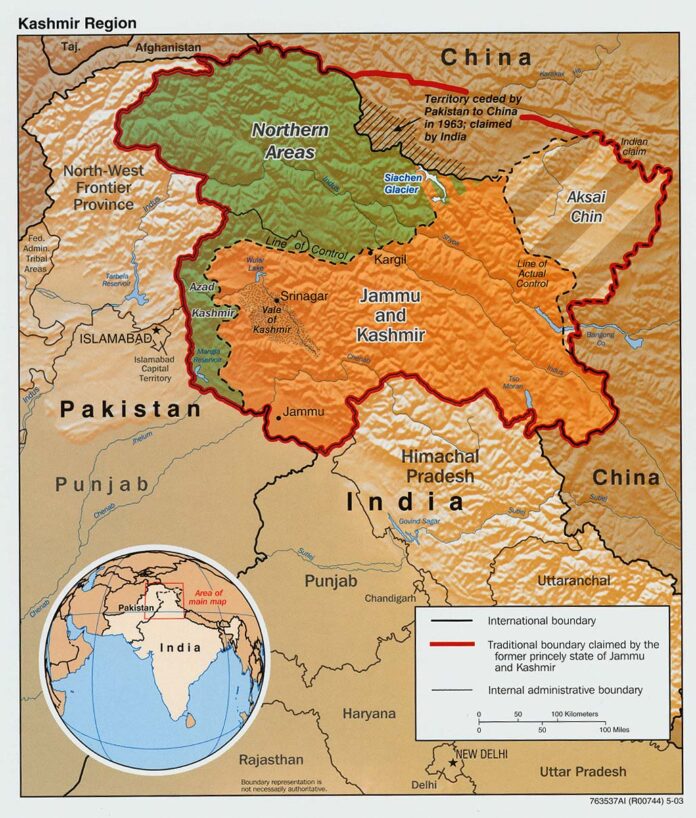The revocation of Article 370 and 35-A by the Indian government in August 2019 was a momentous event that fundamentally altered the political landscape of Jammu and Kashmir. These constitutional provisions, which had granted the region a degree of autonomy within the Indian Union, were seen as the cornerstone of Jammu and Kashmir’s special status. By unilaterally abrogating these articles, the Indian government not only dismantled the region’s autonomy but also triggered a wave of unrest and condemnation, both domestically and internationally.
Article 370, incorporated into the Indian Constitution in 1949, allowed Jammu and Kashmir to have its constitution, a separate flag, and autonomy over all matters except defense, foreign affairs, and communications. Article 35-A, added in 1954, reinforced these provisions by restricting land ownership and government jobs to permanent residents of the region. Together, these articles were designed to preserve the unique cultural, religious, and demographic character of Jammu and Kashmir. The special status was part of the terms of Jammu and Kashmir’s accession to India, and for many, it represented a promise of self-governance and protection of local identity.
The decision to revoke these provisions was presented by the Indian government as part of its broader agenda of national integration. Prime Minister Narendra Modi and his Bharatiya Janata Party (BJP) argued that the special status had hindered economic development in Jammu and Kashmir, fueled separatist movements, and fostered a sense of alienation from the rest of India. By removing these articles, the government claimed, Jammu and Kashmir would be fully integrated into India, paving the way for greater investment, modernization, and peace.
However, the revocation of Article 370 was met with widespread opposition in Kashmir and beyond. For many Kashmiris, it was seen as a betrayal of the promises made at the time of accession, as well as a direct assault on their identity and autonomy. The move was implemented without any consultation with the local political leadership or the people of Jammu and Kashmir, further deepening the sense of alienation. The government imposed a severe lockdown, including a complete communication blackout, mass arrests of political leaders, and the deployment of tens of thousands of additional troops to the already heavily militarized region.
The revocation also sparked international condemnation. Pakistan, which considers Kashmir a disputed territory, denounced the move and called for international intervention. The United Nations, human rights organizations, and several countries expressed concern about the human rights situation in the region, particularly in light of the communication blackout and the mass detentions of civilians, including minors.
In the years since the revocation, the situation in Jammu and Kashmir has remained tense. The promised economic development and investment have largely failed to materialize, and the region continues to be plagued by violence, political unrest, and human rights abuses. The Indian government’s decision to open up land ownership to non-residents has fueled fears of demographic change, with many Kashmiris worried that the region’s Muslim-majority character will be eroded over time.
The revocation of Article 370 has also had significant implications for India’s relations with Pakistan and the broader international community. Pakistan continues to advocate for the Kashmiri people’s right to self-determination, as enshrined in UN resolutions, and has used the revocation to highlight India’s disregard for international norms and human rights. India, for its part, has maintained that Jammu and Kashmir is an internal matter and has rejected any attempts at international mediation.
The abrogation of Article 370 marks a new phase in the Kashmir conflict, one that has further entrenched the political and social divisions in the region. While the Indian government may have succeeded in asserting greater control over the territory, it has also intensified the resistance and discontent among the local population. The road to peace and stability in Kashmir will require more than just constitutional changes—it will require a genuine effort to address the aspirations of the people, to restore democratic processes, and to engage in meaningful dialogue with all stakeholders.
In conclusion, the revocation of Article 370 has eclipsed the autonomy that once defined Jammu and Kashmir, replacing it with a centralized governance model that has alienated much of the local population. While the Indian government continues to promote the move as a path toward national integration and development, the reality on the ground suggests that the situation remains as volatile and uncertain as ever.



